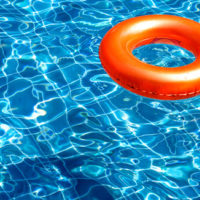6 Ways to Prevent Accidental Drowning

According to the CDC, there are approximately 3,536 fatal drownings each year, which is equivalent to 10 deaths per day, in the United States—a number that is far too high. About one in five people who drown are children. For every one child that drowns, another five need emergency room attention for submersion injuries. With that being said, owning a swimming pool can be a lot of fun, but it can also pose serious risk. If you own a home with a backyard swimming pool, or if you are thinking about investing in a swimming pool, the Miami maritime attorneys at Spencer Morgan Law suggest implementing the following tips to prevent unintentional drowning and to keep your visitors safe:
- Install a Gate: Your fencing should completely surround your pool and be at least four feet high.
- Make Sure Your Gate is Self-Closing: Swimming pool gates should always be self-closing, and latches should be high enough where children cannot reach them;
- Use Pool Covers: Even though you live in Florida and might not need a pool cover, they can be used to deter children from wanting to enter the pool area.
- Learn CPR: Make sure that you and the members of your household are well versed in CPR and that you have the proper rescue equipment on hand.
- Always Check the Pool First: If a child goes missing, make it a habit to check your pool first, even if the cover is on.
- Install an Alarm: Implement a system that alerts you to when the surface of the pool water has been disrupted.
Homeowner Liability
Though these measures may seem a bit drastic, they are necessary—not only for safety purposes, but also to keep you out of legal trouble. No matter what you have been told, the homeowner of a pool is always liable if something should have to both an invitee or a neighbor. The homeowner has a legal responsibility to provide a safe environment for children and adults, and to be proactive in accident prevention. Should they fail to uphold that duty, they may be deemed liable for any drowning or pool related injuries that occur on their property. For this reason, many homeowners opt out of building a pool in their backyard. However, if you are still interested in building a pool, or in you already have one, there are ways that you can reduce your liability:
- Never allow the pool to go unattended if it is easily accessible;
- Make sure that both children and adults are supervised when using the pool;
- Never leave pool toys in the pool when it is not in use;
- Ask guests to supervise their own children;
- Do not allow “drinking and swimming”;
- Have adequate life saving devices near and on hand;
- Make sure that your homeowner’s insurance policy covers pool-related accidents; and
- Never rely on posting warning signs such as “Swim at Your Own Risk” to prevent injury or protect you from a lawsuit.
Consult a Miami Accident Lawyer
Though owning a swimming pool can be a great deal of fun, it can also be stressful and even detrimental. However, if you are set on owning a home with a backyard swimming pool, reach out the Miami accident lawyers at Spencer Morgan Law for advice on what you can do to reduce your liability should an accident or injury occur on your property. To consult with a member of our team, call us at 305-423-3800 today.
Resource:
cdc.gov/homeandrecreationalsafety/water-safety/waterinjuries-factsheet.html
